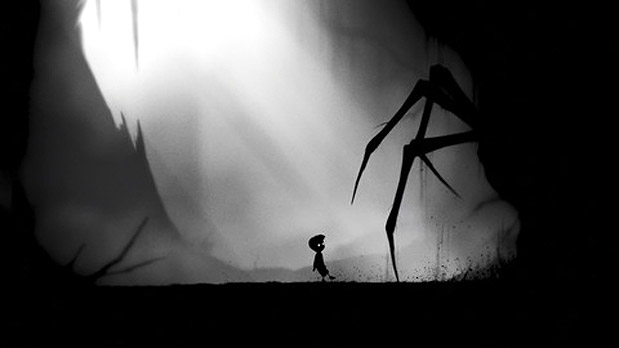Women as reward. It’s an unfortunately common sexist practice I see in many of the video games I have played and the video games I have seen marketed. Rewarding players with women, all women – not just those that are cisgendered, is equally problematic. While games use women and women’s bodies as rewards in different ways, Anita Sarkeesian explains in her Feminist Frequency series that:
“[The “women as reward” trope is] when women (or more often women’s bodies) are employed as reward for player actions in video games. The trope frames female bodies as collectible, as tractable or as consumable, and positions women as status symbols…”
Games that employ this trope often do so by rewarding the player with sexual content, especially if it is explicit in nature, including cutscenes or camera shots with sex or female nudity, hypersexualized unlockable costumes or characters, or gained experience by completing sexual actions. Most fighting games like Tekken and Soulcalibur, Final Fantasy XIII: Lightning Returns, and God of War are just a few good examples for each of these respectively. (In God of War 3, there is a mini game where Kratos can have sex with Aphrodite while her handmaidens watch. He obtains red orbs afterwards which are used in the game for leveling up weapons. In FFXIII:LR costumes play a significant role in the combat system, allowing you to have different perks and skills. Some of the costumes are not fit for battle.)
After reading Amanda Luginbuhl’s previous article on Crash Bandicoot, particularly about the trophy rewarding players for playing Coco basically one time, I started to think about how games may reward players through actual trophies or achievements because they decided to play a female character. Considering most of the “rewards” I have seen regarding women in games are sexual and objectifying in nature it seemed like an interesting way for developers to gender their games in a nonsexual manner. It is also one I had not considered or seen until recently, but is something I could see being problematic as it still treads the line of women as reward. I decided to look through my friends and my PS4 trophy list and Steam achievements to look for games that both (1) allow you to choose the gender of your avatar or your controllable characters (this can be either an a or b option or a completely customizable character) and (2) reward you for playing as a female. I wanted to look at the type of game, the context of the trophies, and the actual “win” condition for getting the achievement. And well, I came away from it with mixed feelings.
Before describing these trophies and my feelings associated with them, I think it’s important to describe types of games that I am NOT considering even if there are technically options for choosing a gender. Two examples that highlight my point well are Dishonored 2 and Sid Meier’s Civilization 6.
In the former game you are given the choice at the beginning to choose if you want to play Emily or Corvo. Both characters, while they have some different abilities, allow the player to complete High or Low Chaos runs (mean ing you can either kill anything that moves or you can approach situations without getting caught). Most trophies in this game are for collectibles, learning new skills, killing enemies, completing chapters, or completing the game on High or Low Chaos. All of which are gender neutral. The only trophies that award a specific character are “finish the game with Emily” or “finish the game with Corvo”. Not only is there a trophy for each character but the game is not explicitly rewarding you for playing a female. I would argue that the choice between playing Emily or Corvo isn’t necessarily meant to be gendered but rather more of a choice between two characters and play style in terms of available mechanics.
ing you can either kill anything that moves or you can approach situations without getting caught). Most trophies in this game are for collectibles, learning new skills, killing enemies, completing chapters, or completing the game on High or Low Chaos. All of which are gender neutral. The only trophies that award a specific character are “finish the game with Emily” or “finish the game with Corvo”. Not only is there a trophy for each character but the game is not explicitly rewarding you for playing a female. I would argue that the choice between playing Emily or Corvo isn’t necessarily meant to be gendered but rather more of a choice between two characters and play style in terms of available mechanics.
Civ 6 runs along a similar line. In this game you can choose between over 30 civilizations each with different bonuses. There are many achievements regarding collectibles and winning the game with certain win conditions and difficulties. The game also rewards you for winning the game as a certain civilization. These achievements read as “win a regular game as Cleopatra” or “win a regular game as Teddy Roosevelt”. Again the trophies are not explicitly rewarding you for playing as a female, but rather rewarding you for playing and winning as a certain Civilization, whom the developers have chosen a specific leader for. Furthermore, there are achievements for winning as each civilization. Now that is not to say that both of these games have done a perfect job of gender representation, but in terms of ‘rewarding players for playing a female’, I don’t think they quite fit.
So what games am I considering? Other than the new Crash Bandicoot, which I will not talk about, I found three other interesting examples: Game Dev Tycoon, Saints Row 4, and Mount & Blade: Warband. I am sure there are others out there, these are just the ones that I found that fit my aforementioned criteria.
Game Dev Tycoon is an indie game available on Steam in which you try to start your own gaming company from the ground up. You start by yourself in your garage sometime around the 80’s. The game is a management simulation and takes reference from real gaming history. The consoles come out at the same time as they did in the past but with different names – Playsystem 2 by Vonny (PS2 by Sony) and the GameSphere by Ninvento (GameCube by Nintendo) to name a few. At the beginning of the game you are given the choice to pick your gender (also interesting – while female is listed on the UI first the male is already selected when you open the game). I chose to play a woman. After my first failed attempt I made it far enough in my second playthrough to hire more people (whom you also control as the player). At first all I could hire were men. When I was able to hire  a women I was rewarded with an achievement called “Diversity”. The condition for this achievement was to “have at least 1 male and 1 female in the same office”.
a women I was rewarded with an achievement called “Diversity”. The condition for this achievement was to “have at least 1 male and 1 female in the same office”.
I acknowledge that the game is tongue in cheek at parts and that it also realistically alludes to conditions in the industry – that there are less females and that there were a smaller number of female applicants especially in the 80’s and 90’s. I also like that the game is not only attempting to reward the player by trying to fix this issue, at least within the game world, but that by including this the developers acknowledge that there is indeed an issue. So I don’t think that the achievement is bad but I still have some issues with the way in which it is rewarded and with the semantics.
First, the achievement ignores the fact that I already was a woman and that for a long time I did have at least one male and female working in the same office. Not only that but the woman was in charge of the office! This means the game and the developers assume that players will always starts with a male character. The second part is that this trophy is relatively easy to get. Now, the game can be really difficult at times, but if you are somewhat successful in your early years it’s not that difficult to hire two more people. It follows the trend to easily reward players for supporting the token minority, and it just feels more like a backhanded compliment than anything else. Another problem is that players could view the Diversity achievement as more of a joke, that it is poking fun at the issue rather than seriously addressing it. Part of this is because of the relative ease of the achievement I just mentioned but could also be due to the general tongue in cheek nature of some parts of the game; some players’ might not realize that serious nature of the trophy it laugh it off as is meant with other parts of the game. The last part, which introduces an entirely new issue, is that by rewarding the player with “Diversity” for having 1 male and 1 female, the game is inadvertently defining diversity along the lines of gender and nothing else. It’s good to note that the game and developers acknowledge that there is a diversity problem, but it is far from exclusive to gender.
Saints Row 4 was the second game I found. In this experience players can customize their character – voice, looks, gender etc. Upon looking through the trophy list I found a trophy titled “Switch Hitter” and it reads “play at least 2 hours as male AND 2 hours as female”. Now, the Saint Row series is far from the bastion of progressive characterization and abolishing sexism, but Saints Row 4 has received “praise” for its more inclusive cast (I say “praise” because just throwing in more females and people of color, or allowing people to customize their characters does not a good representation make. What the developers do with these representations and how they allow players to interact with the characters also matters). Furthermore, this trophy not only acknowledges women (and of course men) as playable characters, but encourages it through reward.
through the trophy list I found a trophy titled “Switch Hitter” and it reads “play at least 2 hours as male AND 2 hours as female”. Now, the Saint Row series is far from the bastion of progressive characterization and abolishing sexism, but Saints Row 4 has received “praise” for its more inclusive cast (I say “praise” because just throwing in more females and people of color, or allowing people to customize their characters does not a good representation make. What the developers do with these representations and how they allow players to interact with the characters also matters). Furthermore, this trophy not only acknowledges women (and of course men) as playable characters, but encourages it through reward.
So, yes, I like that this trophy could force completionist players to divulge in a more diverse play, however for many players this will not affect them, nor are they enticed to really care. I like that players are equally rewarded for playing both genders – one is not put on a pedestal with extremely difficult achievements while the other one is considered ‘easy’. However, it is still an overall easy trophy and once again follows the trope for easily rewarding players for “supporting” a minority group. I also like that the developers are trying to acknowledge, albeit in an indirect way, that females play games and that there should be playable female characters in games. Nevertheless, it is the emphasis of the ‘AND’ that really bothers me. I know this seems like such a minute and nuanced thing but let me explain.
The fact that they put in this trophy and felt the need to emphasize the secondary condition for getting the trophy does indeed highlight one of the issues of representation within games and gaming communities. But by emphasizing the need to play a woman, without any context or real impact in the game world, exhibits women as an “other” in an industry and community where they are already treated as thus. In some ironic ways, instead of just highlighting or trying fix one of the problems within games, it also perpetuates one, especially when you once again consider the ease of obtaining the trophy. Also, by putting a time limit instead of a defined goal (i.e complete three chapters) means that players that really don’t want to play as a certain gender can make a character, leave the game open and then let it run while they go to sleep or go to work. Again, I overall don’t think it’s a bad attempt or idea, but considering the choice of words and taking in the actual impact and context of the game is important.
T he final game I found was Mount & Blade: Warband. I also thought this one was the most interesting for a couple of reasons. The first is that the game has 6 trophies that reward players for playing as a female. The second is that this game considers gender from a historical perspective. While in a made up world and land, the game follows medieval governmental structures, warfare, and gender roles. Therefore, you can choose your backstory and customize your character but the game does not have an explicit difficulty setting. The difficulty is based off of both the gender you choose and the class/education/job you have crafted for your character’s backstory.
he final game I found was Mount & Blade: Warband. I also thought this one was the most interesting for a couple of reasons. The first is that the game has 6 trophies that reward players for playing as a female. The second is that this game considers gender from a historical perspective. While in a made up world and land, the game follows medieval governmental structures, warfare, and gender roles. Therefore, you can choose your backstory and customize your character but the game does not have an explicit difficulty setting. The difficulty is based off of both the gender you choose and the class/education/job you have crafted for your character’s backstory.
I think this is an incredibly realistic way to gender a game that narratively, mechanically, and historically makes sense. It acknowledges the struggle and difficulty women experienced. The last two trophies (that reward you for playing a female) are “Queen” – as a female character, make your own faction and “Empress” – as a female character, become queen of all Calradia. These are extremely difficult and are basically trophies for “winning” the game on a more difficult setting. They do not follow the trope of what is in essence an easy token reward. Furthermore, they are not thrown in to half-heartedly address a serious issue.
I do have an issue with some of the other four trophies:
“Man eater” – Kill 50 men as a female character
“Sassy” – as a female character get into a duel with male lord by insulting him
While obtaining certain goals in the game is much harder as a female – getting land, creating a faction, owning a business – offending people and fighting people is pretty core to the experience. I understand that women are held to a different standard in this game and are treated differently, but fighting and skills are not mechanically affected by your gender. So having an additional trophies on top of the others that is just as difficult (or easy depending on how much you fight) for playing a female I think is unnecessary. The name of the trophy “man eater” is also a little dicey considering how the term is culturally used to associated women’s sexual actions and encounters and is also a term used to describe one of the two bimodal female representations often depicted in media as examined in Barbara Creed’s work The Monstrous-Feminine1.
I don’t think rewarding players for playing a female character is inherently a bad idea or practice. But over-rewarding, easily rewarding, or half-heartedly rewarding players for playing a female character, especially when context of both the game and real life are ignored, are counterproductive and further produce women as an “other” in the gaming sphere. Developers and marketing teams need to be careful about what they are actually trying to justify when rewarding players for these choices and how they further define ‘diversity’ and ‘feminism’. Rewarding players always carries some sort of meaning. Though it seems developers are becoming more aware of these issues and trying to address them within their games, it sometimes feels more like a slapped on ‘diversity accomplished’ sticker than an actual, well, accomplishment. In the end I have mixed feeling on ways players are rewarded for playing female characters and am still left questioning whether or not we should be rewarding players as a means to help rectify a social issue in the first place.
1 Also analyzed in Jane Felstead’s article Man-eaters and Fan-dancers: Exploring Gender Representation, the Female “Other” and Geek-girl Alienation





One thought on “Rewarding Female Embodiment: Analyzing Achievement For Playing a Specific Gender”
Solid assessment and insight!